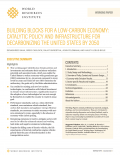
This working paper identifies key climate policies and investments and estimates their emissions-reduction potential and associated costs, which can enable the United States to reduce economy-wide greenhouse gas emissions by 50–52% compared to 2005 levels by 2030 and reach net-zero emissions by mid-century.
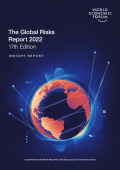
In this report, the WEF tracks global risks perceptions among risk experts and world leaders, highlighting the risks of climate action failure.
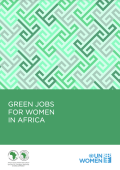
This study applies a gender lens to job creation in the green transition, assessing opportunities for women’s participation in green jobs in key sectors driving growth in African economies.
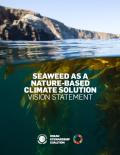
This vision statement positions seaweed as a significant nature-based climate solution with large scaling potential that can directly sequester carbon and indirectly displace greenhouse gas emissions.
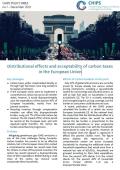
This policy brief aims to help policymakers develop measures that do not place additional burdens on socio-economically weaker groups that are already most affected by the consequences of climate change.
